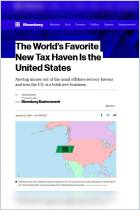
Inside Swiss Banking
The Sudden and Seismic Transformation of a Global Financial Brand
Read offline
Recommendation
A numbered Swiss bank account might rank high on your dream list, but don’t count on it providing the same level of economic privacy that it once did. Now that financial transparency has become a weapon against global terrorism, tax fraud and political chicanery, Switzerland is no longer assured of its place as an island of banking privacy. Beat J. Guldimann’s self-published, well-informed (but not well-proofread) book outlines the history of the Swiss banking industry and its overriding emphasis on client confidentiality. Guldimann, a former legal counsel and senior executive for major Swiss and Canadian financial institutions, says high-profile global investigations into tax evasion, political embezzlement and misappropriation killed Swiss banking secrecy. He acknowledges that some banking crimes took place, but posits that the Swiss financial establishment’s complacency and its business-as-usual attitude helped bring about the nation’s decline as an offshore banking haven. This dodges the question of where Swiss banks’ competitive advantage now might lie. At times the book comes out swinging against Switzerland’s perceived enemies, including the U.S., though Guldimann also offers their points of view. getAbstract suggests this illuminating look at a secretive industry to students of financial history and to all those who hold numbered accounts (or who dream of them).
Summary
About the Author
Beat J. Guldimann, LLD, was a senior executive and legal counsel for major Swiss and Canadian banks. His firm, Tribeca Consulting Group, specializes in consulting for private banks.




















Comment on this summary